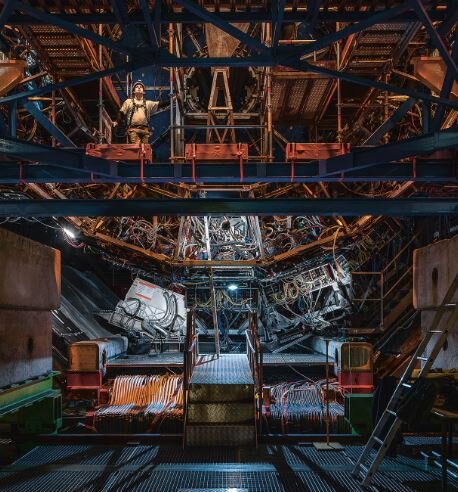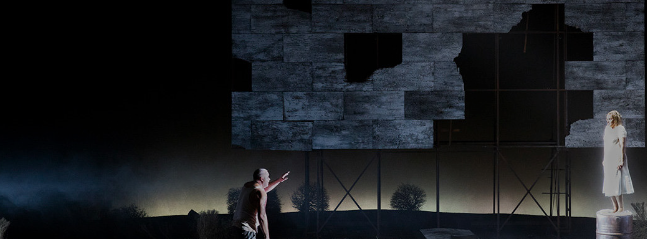Einstein on the Beach – Glass – Grand Theatre Geneva
Image taken from the Grand Theatre Geneva website
Aviel Cahn has arrived at the newly opened Geneva Opera House and in the first production under his control has taken the City and opera scene by storm. This is a man of incredible pedigree having taken the Vlaanderen Opera – he was in charge for 10 years – to its peak in 2019 by obtaining the International Opera Award for Best Opera Company. Instead of starting his new tenure in Geneva with a Puccini/Verdi/Strauss banker, his first opera is out of left field, Philip Glass’s Einstein on the Beach.
Staged by Daniele Finzi Pasca it follows the lines of its 1976 creators, Philip Glass and the Director Robert Wilson. This five hour opera – reduced in Geneva to four without an interval – is built around Einstein’s theory of relativity and is part of Glass’s opera trilogy, which also included Satyagraha and Akhnaten. Even though there is no intermission the audience takes breaks whenever they require and for however long they require. If you sat at the end of a row the constant toing and froing of audience members is a real distraction.
There is no linear story or plot. Words sung are either numbers or syllables and the music is illuminatingly played and sung under the direction of the Swiss Conductor Titus Engel who magically keeps great control of the repetitive nature of the music – not an easy task by any means!
The Director Daniele Finzi Pasca says in the programme that ‘Einstein is about the relationship of human beings and time, of technology and tradition, of perspective and changes and how things seem to change and end up not changing at all’. Perhaps the Director’s deconstruction of the evening’s events and the absence of real meaning leads the audience into an incredibly unconventional perspective of Einstein and this musical four hours.
The swirl of the music is as important as the different event images that fill the stage. The synopsis is clear ‘In this imaginary world performers summersault from one world to another, from one language to the next, from gravity to weightlessness, creating a landscape of colours and emotions that invite the audience to tarry and take to their innermost feeling’ and so the images are at the forefront of ones thoughts – whether it is juggling, a badminton beach scene, flying mermaids (could this be Rusalka again), videos for dance, bikes and horses – and so it goes on.
It was an extraordinary evening that at times touched the soul. Certainly not for the purists, but then perhaps with this choice that is Aviel Cahn’s message and his tenure in Geneva could really be inspiring.







